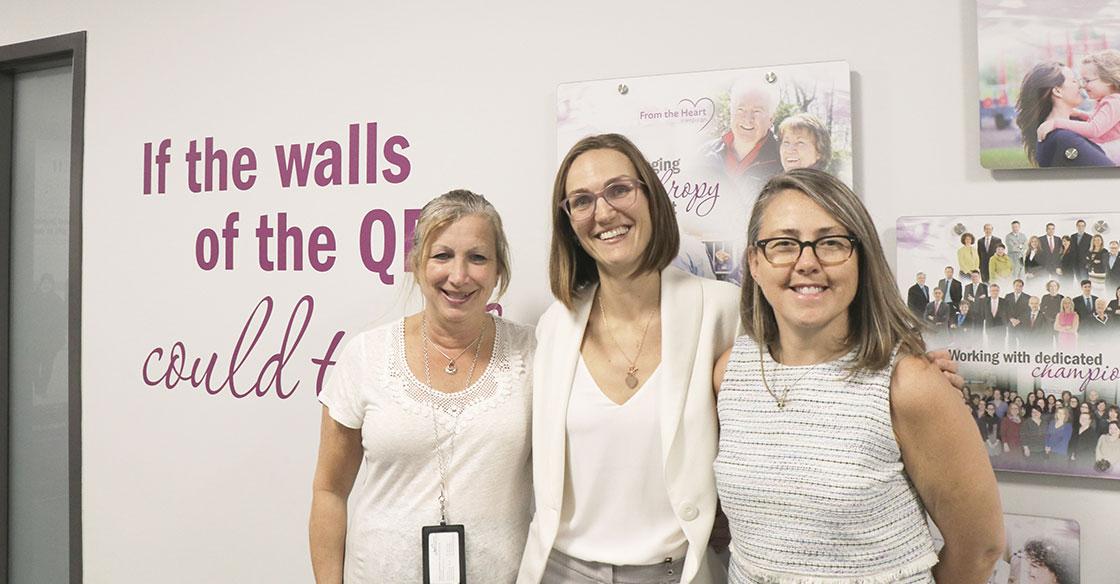
Pictured: Dr. Marcy Saxe-Braithwaite, Dr. Lana Saciragic, Dr. Dolores McKeen
If you ask any health care provider what their top priority is, they’ll likely all give you the same answer: their patients.
For Dr. Lana Saciragic, Dr. Marcy Saxe-Braithwaite, and Dr. Dolores McKeen, that answer couldn’t be more true. That’s why they applied for a QEII Foundation Translating Research Into Care (TRIC) grant.
TRIC grants are donor-funded grants that help provide the resources needed to turn science and theory-based ideas into improved practice and clinical innovation.
For this group of health care providers, TRIC grants are giving them the opportunity to implement evidence-based care at the QEII Health Sciences Centre and IWK Health Centre in gynecologic oncology. The evidenced-based care they will be implementing is known and practiced world-wide as Enhanced Recovery After Surgery (ERAS).
ERAS is a set of standardized guidelines for both patients and care providers to follow before, during, and after surgery. They have been extensively researched across the globe and are significantly improving patient outcomes. ERAS takes a modern day, evidenced-based approach to care and looks at evolving and evaluating what takes place at all points of surgery.
The guidelines are expected to help patients recover better and faster than with usual post-operative care – reduced days in hospital, fewer complications, and at less cost.
This means looking at how patient care has evolved over decades, and using research-based evidence to consider how care providers can improve patient care today.
For example, research surrounding ERAS shows that patients should be eating and moving around more before and after their surgery. This helps patients feel comfortable and less stressed throughout their surgery experience.
Dr. Lana Sacrigac, gynecologic oncology surgeon at the QEII says, “20 years ago after someone had surgery, we would’ve waited to give them food until we could hear bowel sounds or they could pass gas. The ERAS principles now show that that’s not what the body needs.”
When ERAS is implemented, patients are seen as partners in their health care journey. Families can expect their loved ones to have more education, more information about their surgery, and overall be better prepared for surgery.
Dr. Dolores McKeen, Chief of Anesthesiology at the IWK, has already implemented ERAS in gynecology at the IWK. “Patients who have had surgery at the IWK prior to ERAS being implemented comment on how much different their experience is when they have surgery again with the standardized recovery guidelines” she says. “They are less uncomfortable, less hungry, they feel prepared, and that they are partners.”
“It’s an investment in our partnership with the patient during their surgical journey,” says Dr. Marcy Saxe Braithwaite, Senior Director Perioperative/Surgical Services, at the Nova Scotia Health Authority. “The days are gone where it’s the surgeon knows best. We’re going to work together with our patients and show them that they have choices.”
Since launching in 2013, the TRIC health care improvement research program has awarded more than $2 million to more than 70 research teams at the QEII Health Sciences Centre and the IWK Health Centre to apply the latest research evidence to improving patient care.